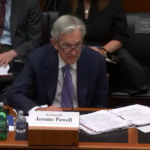Confirmed earlier this week by the U.S. Senate, new U.S. Department of Housing & Urban Development (HUD) Secretary Scott Turner sat down with The Wall Street Journal to outline his priorities as he assumes the role leading HUD.
Among his immediate goals for the Department is the privatization of Fannie Mae and Freddie Mac (GSEs), a process he feels can be facilitated among HUD, the Treasury Department, and Congress.
Turner noted HUD’s role as “quarterback” in the process, harkening back to his nine-year career with the National Football League (NFL) as a cornerback with the Washington Redskins, San Diego Chargers, and Denver Broncos.
“There are partners that will be at the table and obviously we’ll be one of them,” said Turner to the Wall Street Journal. “When you’re a quarterback, you’ve got to work with the entire huddle.”
Critics have stated that privatizing Fannie Mae and Freddie Mac could potentially drive away buyers of mortgage-backed securities (MBS), resulting in an uptick in mortgage rates. Scott Bessent, new Treasury Secretary, said that any plan for ending the so-called conservatorship of Fannie Mae and Freddie Mac “should be carefully designed and executed.”
According to a recent piece in The New York Times, “some of the most vocal proponents of putting Fannie and Freddie back in private control are hedge fund managers and wealthy investors, who still own shares of the companies even though they’re government controlled.”
Setting Goals
In addition to the privatization of the GSEs, Turner noted he will “launch a broad review to root out inefficiencies and streamline HUD,” looking at all of the Department’s processes with a fine-toothed comb.
And as President Trump is taking aim at all government agencies and departments to streamline costs through return to office mandates, Turner will exercise the same with HUD in calling for return-to-office policies that could drive some government workers to leave, as well as taking aim at DEI initiatives.
Turner, nominated in November for the role of HUD Secretary and confirmed this past week, enters the role as the housing market struggles with home buyer affordability issues, high interest rates, and the average home value at $356,585, up 2.6% over the past year. Turner told the Wall Street Journal that he would continue to work on opportunity zones, which were touted in the previous Trump administration as a means to encourage investment in low-income areas.
In his chat with The Wall Street Journal, Turner noted that the Trump administration plans to allow more building on federal lands, which could include rural, urban and tribal areas. Turner also added that he would like to change the name of HUD to better reflect its “reach,” which should include rural and tribal communities—a move that would require congressional support.








